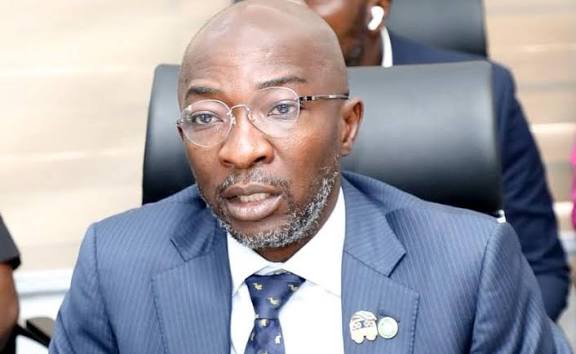
The Nigeria Labour Congress(NLC),has faulted the decision of the Federal Government to sale the Transmission Company of Nigeria,saying it was an attempt to concurrently raise electricity tariff in the country
Its President,Comrade Ayuba Wabba,who disclosed this in Abuja, against the backdrop of recent publication in a national daily hinting of the Bureau of Public Enterprises moves to sell the TCN
He said that neither Congress nor the sectoral affiliate union was officially contacted or even informally consulted on the alleged plan.
He added that the current attempt to hand over the Transmission Company of Nigeria to a few ‘privileged’ Nigerians is self-serving, obtuse, odious, morally reprehensible and criminal,adding that Nigerian workers and people are vehemently opposed to this plot and will resist this grand larceny.
He said:”The TCN is a strategic economic asset of immense national security implications. This is because the TCN traverses all the nooks and crannies of Nigeria. It would be wrong that our country would be deliberately exposed to an avoidable vulnerability and thus, provide an opportunity to others to overawe the Nigerian state, assail national cohesion and threaten the security of our people.This position flows from the ineluctable lesson of the historical incidences of allowing some private organisations of questionable intentions and antecedence to own and run strategic economic assets in our country.
“At any rate, Congress is hard put to find any serious country that would hand over her strategic energy grid to private entities, not even for commercial management let alone outright ownership in a potentially dubious deal. Thus, the story of the planned total divestment and ceding of the TCN as credited to sources is creepy and confounding! The sneaky plan exemplifies one in the series of unacceptable bitter pills forcibly pushed down the throat of the Nigerian people, in pursuit of an egregious ill thought-out reforms policy.
“It is significant to recall that a constant argument in the spate of the sale and privatisation of national economic assets was that the introduction of private capital and modern management techniques would accrue efficiency to deliver better quality public goods and services. However, like every promise made in the context of the neoliberal policy agenda superimposed on our country for more than thirty years running, the alienation, sale and privatisation of national economic assets have not yielded visible injection of capital goods or transfer of technology or innovative and competent management practice.
“Instead, the penchant for malversation with national economic assets has been a rip-off that results in asset-stripping and gross underdevelopment of economic sectors where Nigerians had acquired the capacity to produce secondary goods. The consequent loss of the capacity for economic production has frustrated many Nigerian professionals occasioning the brain drain crisis.
He said it was wrong for the government to promise improved power supply to consumers by the planned sale of Transmission Company of Nigeria.
He maintained that the privatised power assets, which have survived the rapacity of the new owners, have been turned into unrealisable collaterals for unpayable loans, constituting a bone stuck in the throat of financial institutions and sundry creditors.
He said the resultant worsening inefficiency of the privatised assets has come to haunt Nigerians and has increased the wasting disease that the privatisation prescription was profusely promoted and touted as a cure.
He added: “According to the National Electricity Regulatory Commission (NERC) website, there is over 14,000MW of installed electricity generation capacity in Nigeria. Out of this, the privatised GENCOS produce a tiny output. To quote NERC, the “average operational generation capacity is far below the total installed generation capacity.” To clarify the NERC statement, less than one-third of the embedded power of GENCOs is available in the market. Moreover, privatized DISCOs cannot uptake the puny output and distribute it to consumers.
“It goes without saying that electricity privatisation in Nigeria is an outstanding failure. That Nigerians were taken for a ride does not seem enough. But to cover the grand deception, successive state actors have unconscionably refused to respect the provisions of the Electric Power Sector Reforms Act (ESPR) 2005.
“For instance, the Sales Agreement for GENCOs and DISCOs is long overdue for review. Congress has repeatedly called for the review of the performance of the GENCOs and DISCOs. According to the ESPR Act 2005, this should be done in a five-year cycle. The Government has rebuffed this requirement of the law which is to the advantage of the Nigerian people. The reluctance of Government in this matter cannot be said to be in the national interest or can it be intended to serve higher ideals; on the contrary it is tantamount to a gratuitous shellacking of the public interest and undermining the law.
“We urge the Nigerian people to make no mistake about the plot to sell TCN as it would only result in the continuation of the regrettable policy of heaping an unbearable burden on the ordinary people. The plan would also fundamentally weaken the security of the nation and above all, deprive the people of their age-old investment in the commanding heights of the Nigerian economy”
“In sum, Congress reiterates that it is faulty to contemplate selling the TCN; it is an obvious misdirected and insupportable policy. This clandestine plot is like the kite squeaking in the dark with broken wings; it will simply not fly!’






















